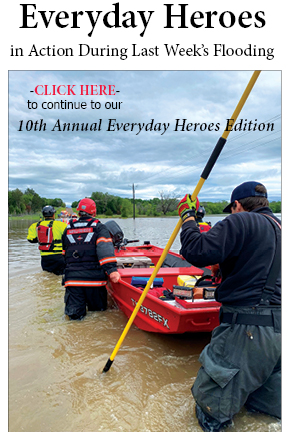Earlier this year, Jo Olive Watson Zickuhr donated a book of her stories to the Freestone County Historical Museum.
Rememberings: A Collection of Recollections was written, according to the title page, at the request of Jo Olive’s granddaughter, Brandi Turner Holcomb.
The table of contents list several stories about Stewards Mill, and include some rather intriguing titles, such as “Chicken Killer,” “Grandpa and the Graveyard,” and “Old Mustard.”
Before she passed away, Jo Olive gave permission for the stories to be published, as long as she got the byline.
Below is one that Museum Board President, Linda Mullen, picked out.
The book is dedicated to Jo Olive’s son, Justin Turner, and her grandchildren, Brandi Turner Holcomb, Ashley Turner Jones, and Joseph Brett Turner.
In the next several months, the Freestone County Times hopes to bring a few more of her stories to print.
We will miss you, Jo Olive.
Stewards Mill Cemetery
by Jo Olive Waston Turner
This is a quite place, an ordinary place. One of hundreds of such places scattered across Texas. Just a simple country cemetery. There are no impressive entrance gates. No massive encircling walls. There are no extravagant monuments reaching skywards, no headstones covering more ground than the grave itself.
The trees are the same kind that have always been here. There has been no planting of pines or weeping willows. The only additions are a few crepe myrtle and a handful of mimosas that have crept in unnoticed.
The ground is mostly sand and grass is sparse, except toward the front gates. In spring, some of the plots are covered with wood violets and wild onions. There are a few puny rose bushes and gardenias that people have set out but mostly what grows here grows on its own by the Grace of God.
Most of the graves are laid east to west to catch the “rising and the setting” of the sun. Nothing here is really regulated, measured, or metered. This place is simply what it is, a country cemetery. A place set aside in an earlier age by a people who, tho occupied with day to day lives of few advantages and harsh realities, nevertheless, they wished to have a central place to decently bury and watch over their dead. As one elderly lade remarked to me one day, “it’s not so hard to leave those you love, if you know that they rest with family and friends.”
Here they are then. These people from years ago with their dreams, their hopes, their plans. The same names can be seen over and over as last names, first names, or middle names. Families marrying in and out of families and back again. Friends buried near friends, battle comrades scattered thru out, veterans of so many wars. Little children with little lives cut short and others who lived from one century to another. And those whose nameless passing is marked by only a rock or stone that is carefully set back in place decade after decade.
Cemeteries like this are of great interest to students of history, to those who collect the past.
Cemeteries like this are of great comfort to those whose families and friends are already there. A comfort to those who know they too will join an everlasting widening circle of is and was and will be.




